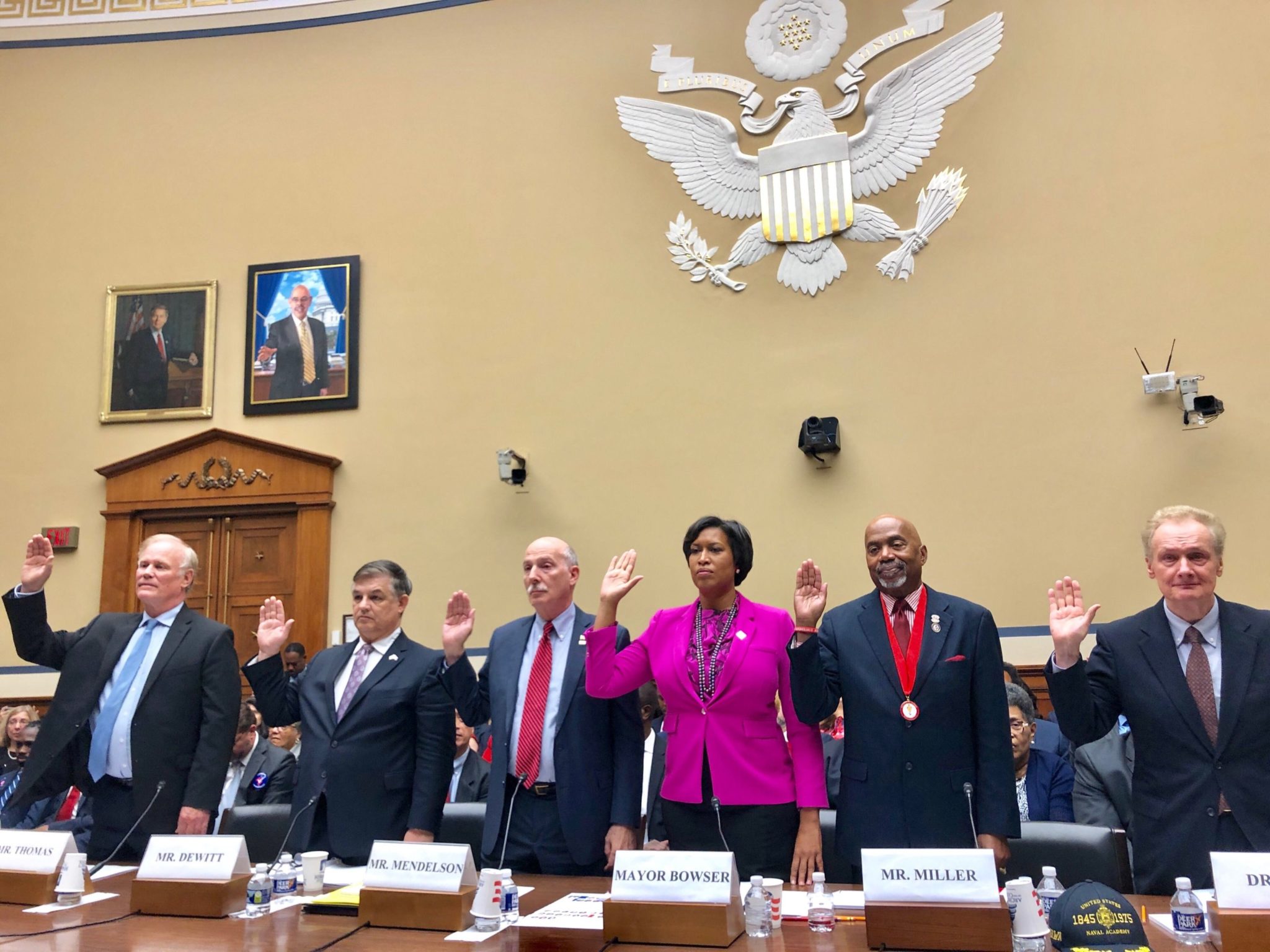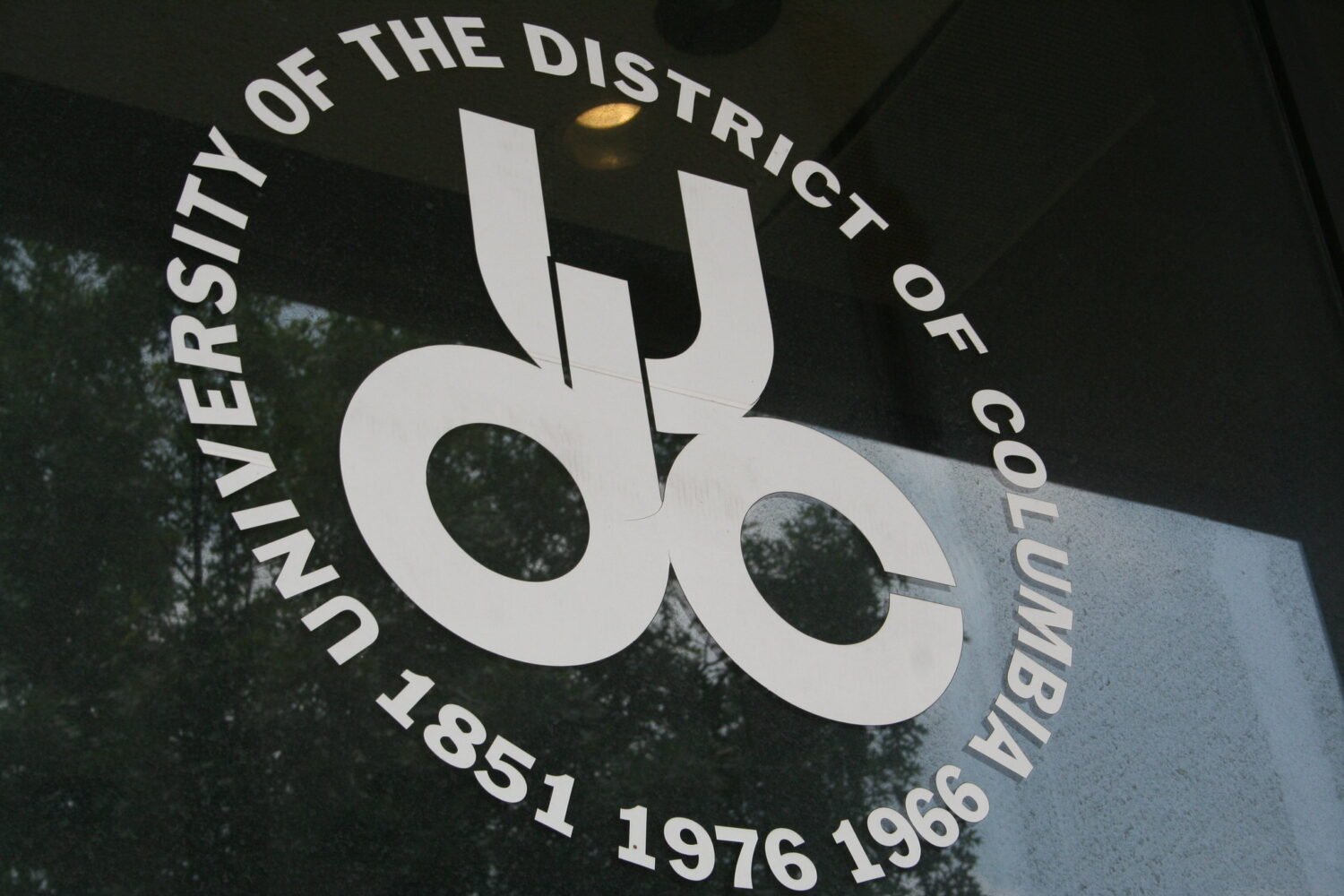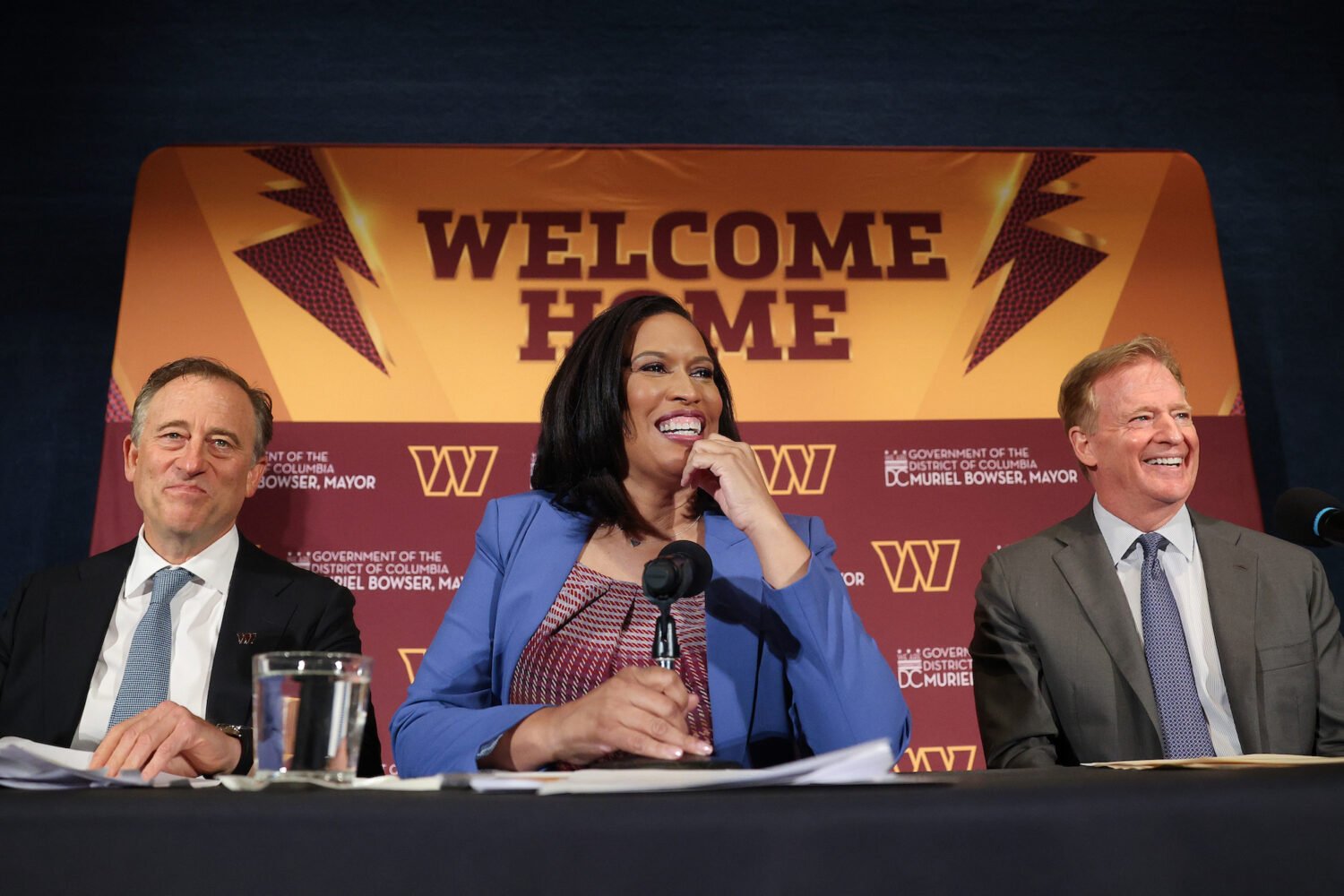The House Oversight Committee’s hearing yesterday on DC statehood was the first in the chamber since 1993. Back then, the District’s finances were in considerably straitened circumstances, the region’s congressional delegation withheld its support, and Democratic leadership were nowhere to be found (John Dingell was famously in opposition to the idea of making DC a state).
Twenty-six years later, it was striking to see statehood’s fortunes captured so richly in a single week. Speaker Nancy Pelosi Tweeted her ringing support for the 51st state, which would be called Douglass Commonwealth. In a chain of testimony, one Democrat after another expressed their support, including Steny Hoyer, once a foe of statehood. Then there were the America flags, retrofitted with an extra star and placed along Pennsylvania Avenue, which caused a stir in the lead-up to Thursday’s event.
But the hearing was far from placid. Exchanges were often tense, and sometimes bitter, reflecting the partisanship that rules the day in the Trump era. Occasionally, the clash offered insights about statehood’s political prospects going forward. Here are a few.
Democrats are leaning hard into accusations of partisanship.
If the debate ever rested on good-faith disagreements about the Constitution, all such pretenses were abandoned minutes into the hearing. Speaking in her opening remarks, Mayor Bowser preemptively ticked through common arguments against statehood. “But let’s face it,” she concluded. “These are bad faith arguments by people who really oppose statehood because they think it will mean two Democratic Senators.”
“Yes it is true, we are more brown and more liberal than some of you,” said Bowser. “But denying statehood would be unfair no matter who is affected.”
Republicans are playing up corruption and incompetence.
Republicans on the committee tried to turn the hearing into the Jack Evans show, citing the recent allegations of corruption against the DC councilmember as a litmus test of the city’s municipal competency. “We cannot ignore the elephant in the room,” said ranking Republican Jim Jordan. “The District government currently faces serious allegations of misconduct.”
“Sadly, the allegations against Mr. Evans are just the latest in a series of local DC political scandals,” he went on. Republicans claimed that if statehood passed, it “would promote Evans to the position of state legislator.”
But Evans wasn’t the only topic Republicans milked. They also asked whether DC was overly reliant on revenues from sports gambling, and questioned the administration of the Metro.
Statehood advocates want to make their cause the newest issue of the woke left.
Democrats made racism and civil rights a central argument in their remarks on statehood. Rep. Alexandria Ocasio Cortez drew historical parallels between slavery, manumission and the franchise: “To deny the statehood of the District of Columbia is to deny the impact of slavery in America,” she said, likening DC’s current status to “second-class citizenship.”
In one of the day’s most pointed exchanges, Rep. Gerald Connolly pressed Roger Pilon, a constitutional scholar who testified in opposition to statehood, on the role of race in the debate. “I fear that the party of Lincoln that led us to the 13th and 14th and 15th Amendment, that won the Civil War, is increasingly sounding like the party of Stonewall Jackson and Jefferson Davis,” said Connolly. “When they say it’s not about race and partisanship, you can be sure it’s about race and partisanship.”
Pilon acknowledged some of the partisanship, but insisted disagreement over statehood “is not about race,” and urged Connolly to take back his comment.
“Never!” Connolly shot back, to some applause. Other members quoted Frederick Douglass.
No argument is too bizarre.
While Democrats meticulously trotted out figures and legal rationale, Republicans offered far more colorful arguments. Thomas Massie, a Republican from Kentucky, accused statehood proponents of drawing the Trump Hotel inside the proposed borders of a new state in order to reap more tax revenue. (In fact, virtually all of DC would become a new state, with the exception of a sliver of federal properties.)
Massie topped himself, however, when he raised a truly novel objection to statehood for the District’s roughly 700,000 residents: Where would Hill staffers park? Parking lots outside the federal zone would give the state too much power over government bureaucrats: “This is the ridiculousness you get into when you try to draw a federal city into a teacup,” Massie said.
“We expected a lot of the questions about constitutionality,” Bowser later said. “I didn’t expect for our rights to be subjugated to those of Hill staffers and their parking needs.”
The Founding Fathers were in vogue again.
Both sides tried to lay claim to the mantle of the country’s founding era, with Chairman Elijah Cummings citing the Boston Tea Party and Mayor Bowser calling statehood in harmony with “the very founding premise of this nation.”
Republican members, meanwhile, painted statehood as patently unconstitutional as envisioned by the Founders. “This is a constitutional malfeasance if it’s done,” said Republican Ralph Norman.
At one point, the hearing turned into a history lesson. Kenneth Thomas, who testified on behalf of the Congressional Research Service, noted the wide variety of ways that territories have become states in the past—including six states that ratified constitutions without ostensible approval from Congress but were later admitted to statehood anyway (Tennessee, Michigan, Iowa, Oregon, Kansas and Alaska).
“Whether Congress can create a state from the District of Columbia raises novel constitutional questions,” Thomas said. “There is little case law directly on point.”
What Republicans really fear: A slippery slope.
Republican opposition to statehood has been cast purely as resting on the basis of electoral politics, as the new state of Douglass would almost surely grant Democrats more elected representatives, including two more senators.
But the hearing suggested even deeper fears of greater and further-reaching reforms, implying that the statehood movement, if successful, might herald a Constitutional renaissance for other issues that have captivated left-leaning reformers. Republican Chip Roy, for instance, pressed Mayor Bowser for her views on the electoral college, an issue with little immediate relevance to statehood. In June, Senate Majority Leader Mitch McConnell told Fox News that while DC statehood “would give them two new Democratic senators,” he lumped in the proposal with other projects, adding, “[Y]ou’ve surely noticed that they plan to expand the Supreme Court.”
For McConnell, of course, any Democratic victory is just one more step on the road to serfdom. In the same interview, McConnell painted the issue of statehood as “full-bore socialism” (though he did not explain how, exactly, voting equates to socialism).
People love that flag.
Mayor Bowser made a clever play for recognition ahead of the hearing this week, lining DC streets with a retrofitted American flag that included a 51st star.
At the hearing, the flag also had its due. Rashida Tlaib asked Mayor Bowser where she could get one. Bystanders held up the flag during the hearing as well, prompting DC’s non-voting representative Eleanor Holmes Norton to quip, “See, you can’t even tell the difference. What’s the harm?”

















